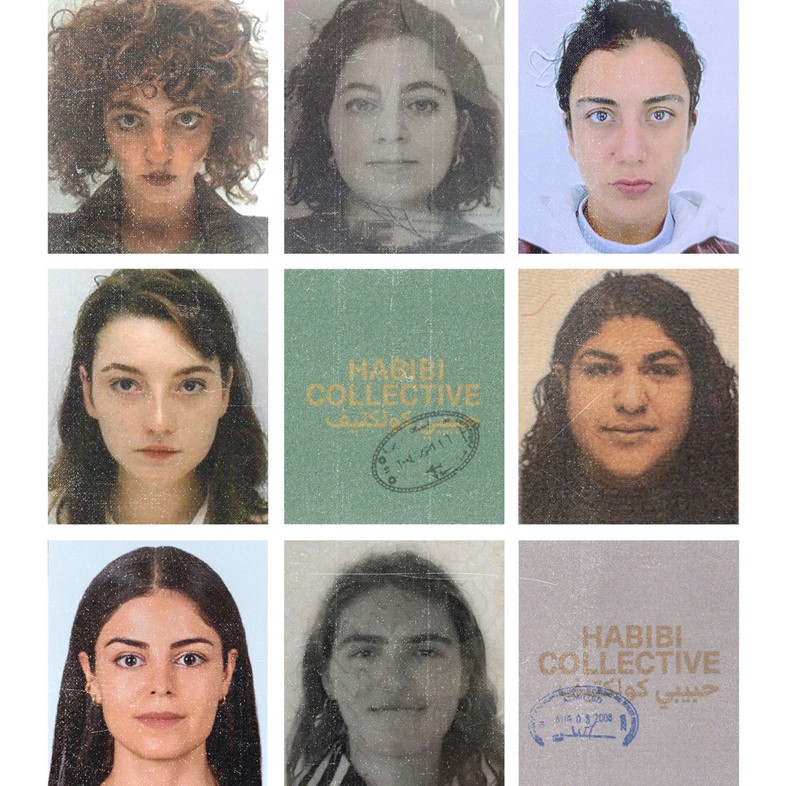Featuring Mona Hatoum’s Measures of Distance, Emily Jacir’s Letter To A Friend, and Jumana Manna’s Wild Relatives
This piece was originally published on June 14, 2021
The 2021 Dazed 100 – part of Open To Change, a larger platform from Dazed and Converse aiming to carve out visibility for underrepresented voices – is all about spotlighting the cultural changemakers breaking new ground across the globe. It’s about platforming ideas that will enact radical change, and looking at what’s next for the creative industries too.
As part of the programme this year, five of the Dazed 100 cohort will explore their field, their practice and their hopes for the future in their own article for Dazed. From London-based musician cktrl to the groundbreaking South African magazine and agency Bubblegum Club. First up: Habibi Collective, an open source digital archive and curatorial platform celebrating women’s filmmaking from South-West Asia and North Africa.
Since 2018, Habibi Collective, which is operated by Assyrian Iraqi film programmer Róisín Tapponi, has been instrumental in circulating Palestinian women’s cinema. To discover and watch more films by women from South-West Asia and North Africa, check out Habibi Collective’s streaming service Shasha. The world’s first independent streaming service focusing on films from South-West Asia and North Africa, it was established by Tapponi in 2020. Here, they curate an introductory list to Palestinian women’s cinema, for a Western audience.
“We stand in full solidarity and support with our Palestinian sisters”
- Habibi Collective
Were Habibi Collective to win the Dazed 100 grant they’d throw a two-week summer film festival. The first film festival in London by and for women of colour, it would come as a natural extension to SHASHA, and would include film screenings, workshops, masterclasses, panel talks and parties across London.
Explore the full 2021 Dazed 100, in partnership with Converse, and cast your vote now – and stay tuned for the winners announcement.
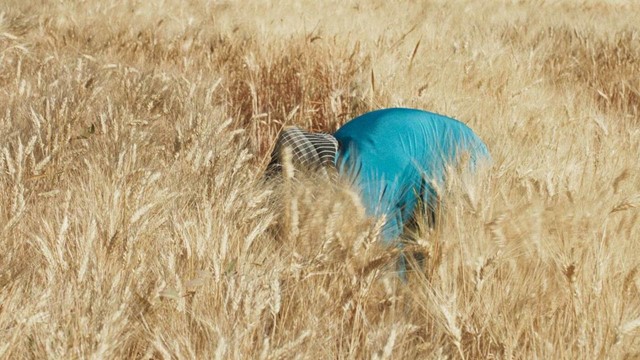
Wild Relatives (2018), dir. Jumana Manna
Wild Relatives centres on an event that caught international media attention for the way in which it intersected the environment and the turbulent political landscape of Syria over the past decade. In 2012, at the outset of the Syrian War, an international agricultural research center was forced to relocate to the Bekaa Valley of Lebanon.
This move necessitated an arduous process of replanting the center’s seed collection using back-ups from the Svalbard Global Seed Vault; a task that was undertaken by young migrant women. Following the path of this transaction of seeds between the Arctic and Lebanon, the film depicts a series of encounters, both human and non-human, and in doing so explores the difference between these two very different locations.
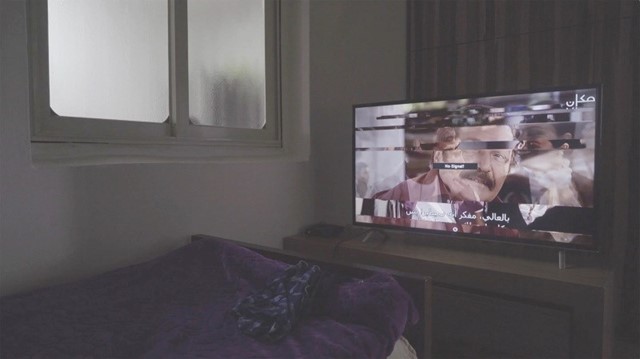
Like a String of Beads (2019), dir. Inas Halabi
Inas Halabi’s 2019 documentary focuses on nine siblings, whose ages span early 50s through to mid-70s, and who all live close by each other in the small village of I’billin in Galilee. It’s a compelling portrait of family life, and of the ways in which personal memories and experience can overlap, but also contradict each other.
Halabi asks each sibling to narrate their own history. The recounted memories of these interviews paint a tableau of family life which is at times contradictory. By allowing its subjects to tell their own stories, Like A String Of Beads is able to both capture the pace of life in the household, and portray the imagined aspects of their family life.
These family-specific dynamics are subtly mapped on to the wider Palestinian struggle, with glimpses given to howoccupation has impacted the family, and the ways in which it will continue to shape their future.
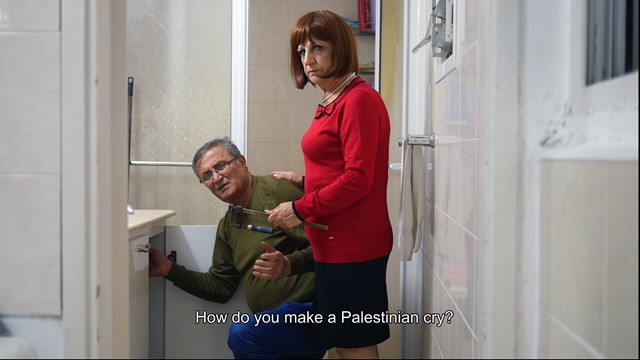
Trouble in Paradise (2018), dir. Mona Benyamin
Mona Benyamin’s 2018 short “Trouble in Paradise” considers the function of humour as a coping mechanism for the Israeli occupation, as told through the lens of the artist’s own dysfunctional family.
Benyamin’s parents, neither of whom speaks English, read a series of jokes written in English from title cards. Each of which has been created by Benyamin to explore different aspects of comedy; from misogyny, to ‘anti-jokes’ to humour which doesn’t translate.
Benyamin’s film isn’t afraid to push boundaries, asking why jokes about the Nakba never caught on. Benyamin’s parents both have first hand experience of the Nakba, which they have never discussed with their daughter.
Though specific to Palestine, “Trouble in Paradise” is also an exploration of age-old questions about the limits of acceptability in comedy, and whether humour can act as a balm to trauma.
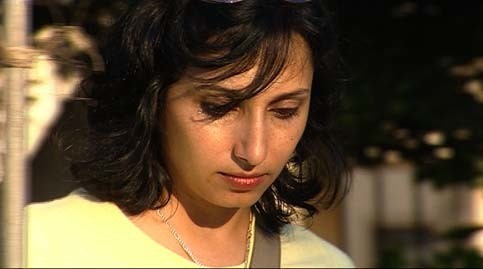
Kings and Extras (2012), dir. Azza El Hassan
The Palestine Liberation Organisation’s Media Unit, spearheaded by the filmmaker Mustafa Abu Ali, was formed in the ’60s, with a mission of documenting and depicting a people’s history of Palestine. In the 1982 Israeli invasion of Beirut, their entire archive of footage, spanning 25 years of Palestinian history, went missing; it’s wherabouts are still unknown to this day.
Kings and Extras traces director Azza El-Hassan’s attempts to find these missing films, alongside her continued work in restoring them through her excellent archival initiative, The Void Project. Travelling through Syria, Jordan and Lebanon in search of information, she follows different theories, possibilities and dead ends. Was the archive simply destroyed in the invasion? Does it still exist, but under the watch of the IDF? Were the tapes, as one of her leads claims, smuggled to safety and now stored in a graveyard in the city?
The resulting film is a meditation on the importance, and profound difficulty, of creating an archive for a place and people facing repeated destruction.
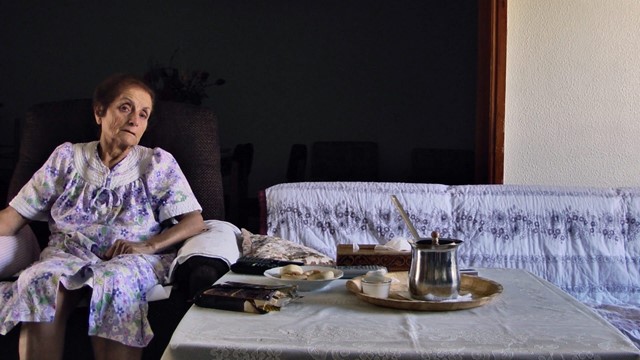
Mussolini’s Sister (2018), dir. Juna Suleiman
Juna Suleiman’s tender, intimate and immensely entertaining “documentary with a dash of fiction” is a day-in-the-life look at the director’s own grandmother, Hiam.
More or less now confined to her home in Palestine in her old age (excepting the occasional trip to her hairdresser) the film gives us Hiam waxing her top lip, making food for her son Mbadda, and holding forth on contemporary life as it unfolds on her TV screen. Hiam’s own history is shaded in as she watches old family movies too; she really did have a brother called Mussolini, and one called Hitler too.
Dotted with pearls of grandmotherly wisdom – in particular that you can’t trust men, and that family can be a let down – Mussolini’s Sister is an original look at arranged marriage, loneliness, physical and mental decline and racism.
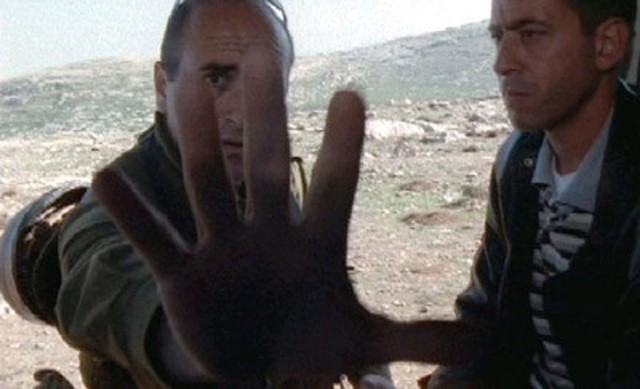
Like, Twenty Impossibles (2003), dir. Annemarie Jacir
Like, Twenty Impossibles opens with a Palestinian film crew travelling across a desert in an old car - they avoid a closed checkpoint, instead taking a remote side road. As the arid landscape unfolds around them, the political landscape is made evident as the passengers are inhibited by the checkpoints of military occupation. The self-referential film is concerned with filmmaking in Palestine, and with the impossibility of making a road movie in a region marked by checkpoints and borders.
Like, Twenty Impossibles was the first Arab short film to be chosen as an Official Selection of the Cannes International Film Festival. It screened as part of Cinéfondation, the competition’s new talent-focused arm, which runs 20 of the finest short and medium-length films submitted by film schools from all over the world.
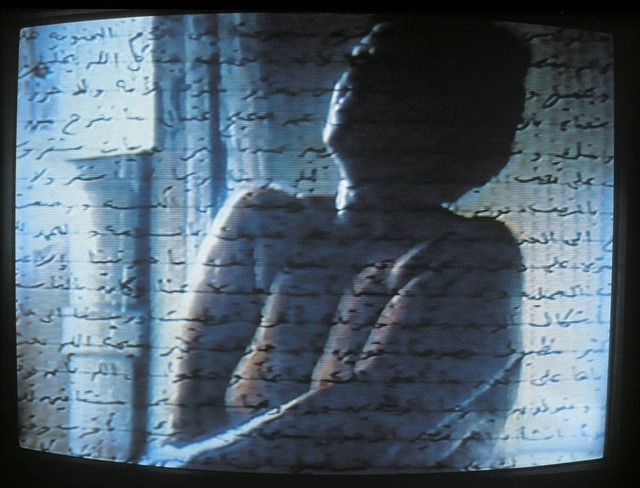
Measures of Distance (1988), dir. Mona Hatoum
Now in her 60s, Mona Hatoum is one of, if not the most, well-known female artist to come out of Palestine, and this short by her has achieved cult status in the three decades since its 1988 release.
In this video work, Hatoum writes letters from London to her mother, who is living in Lebanon. Innovative for its consideration of the gaps created between cultures, in Measures of Distance the text of the letters, in Arabic script, plays over images and footage of Hatoum’s mother showing, recorded by Hatoum during brief visits home. Hatoum reads the content of the letters in English out over the top of the film, emphasising the distance created by language.
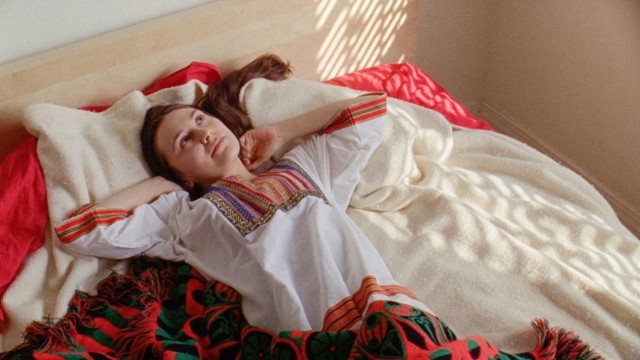
Ouroboros (2017), dir. Basma Alsharif
2017’s Ouroboros was the first feature film from Basma Alsharif, an artist of Palestinian heritage whose work spans video, still images, installations and performance. A consideration of the endless cycle of destruction and renewal that the Gaza Strip has been forced to endure, it takes its name from the ancient symbol of a snake eating its own tail, which has historically been a representation of both eternity and endless repetition.
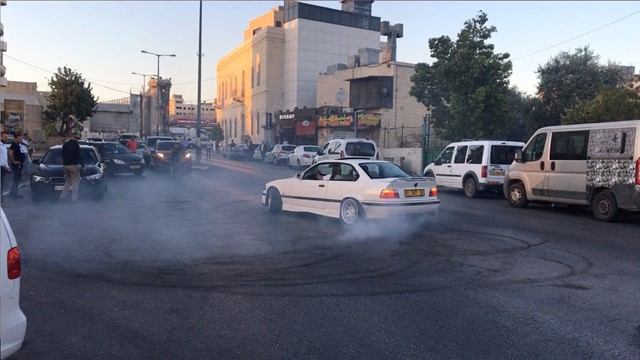
Letter to a Friend (2019), dir. Emily Jacir
True to its name, Letter To A Friend takes the form of a letter, written by director Emily Jacir when a violent incident leaves the street outside her home on Bethlehem’s Hebron-Jerusalem road littered with tear gas canisters. (We later learn this strip holds the unenviable title of most teargassed spot on earth).
Addressed to Jacir’s friend Eyal Weizmann, who is the founding director of London’s Forensic Architecture, the film charts the history of Jacir’s home, which was built in 1880 in the Ottoman period, up to the present day, where it sits surrounded by illegal Israeli settlements.
Jacir uses her own footage and that of her friends, inter-spliced with news footage, photographs, maps and archival documents, to give an impression of a house that’s simultaneously sentimental and historical.
